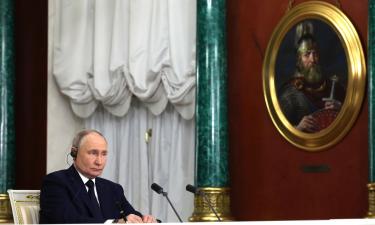Worldwide Use of the Death Penalty Increases Twofold
Latest figures released by human rights organisation Amnesty International show that the number of executions in the year 2001 was over twice as many as in the year 2000.
The International body’s annual report, published yesterday, states that 3,048 executions were carried out in 2001, compared to the year 2000 figure of 1,457 – an increase largely attributed to Beijing’s new “Strike Hard” crime policy. Indeed, no fewer than 1,781 people were executed in China between April and July 2001 - more than the total number of people executed in the rest of the world in the previous three years combined.
The Human rights group also highlights the extensive use of the Death Penalty in Iran, Saudi Arabia and the US (the number of executions in these countries being 139, 79 and 66 respectively) and highlights that when the number of executions in these countries are taken together with those of China, they amount to over 90% of the 2001 total. Amnesty also mentions that the number of executions in Iran was believed to actually be “much higher”, pointing out that the report includes only officially-acknowledged executions, as “many countries [are] deliberately keeping the true numbers of those executed secret, belying the supposed deterrent value of the death penalty”.
Amnesty International also expressed concern over the fact of 5,265 people worldwide were sentenced to death last year (up from the year-2000 value of 3,058) with many cases in “blatant violation of international standards on the application of the death penalty”. Such violations include sentencing someone to death for an act committed while under the age of 18 – the three recorded cases in 2001 occurring in Iran, Pakistan and the US.
The report welcomes the fact that three further countries outlawed the death penalty in 2001, which meant that by the end of the year 111 countries had already abolished such a punishment either “in law or practice”. The organisation also welcomed the tightening of legislation on this topic in both the former Yugoslavia and Chile, and also called on the UN Committee of Human Rights to establish an international moratorium on the use of the death penalty.
With regard to Russia, a moratorium on the death penalty has been in place since a decree by President Yeltsin in August 1996. However the issue has come under the spotlight again recently, with the lower chamber of Parliament, or State Duma, voting in February for the penalty to be reinstated. Speaking in an interview at the weekend, Vladimir Putin recognised the political significance of this issue in Russia, but asserted that he would not engage in the (personally) “politically beneficial” move of abolishing the moratorium in order to “close the topic for several years”. Mr Putin stated last month that any removing of the moratorium on the death penalty would not reduce crime, and this weekend added that crime prevention “required actions in a broad range of spheres” and not simply “slogans and populist moves”. However, as a member of the Council of Europe, Russia must conform to the requirement that the death penalty is ruled out, and it is this, as well as human rights and the battle against crime, which explain this weekend’s defining statement by the President, that: “As long as anything depends on me, there will be no death penalty in Russia”.
Tom Wishart, PRAVDA.Ru
Photo by Aravot.am
Global executions double as China puts 1,800 to death Kill the death penalty Prodeathpenalty.com Amnesty International. Worldwide executions doubled in 2001 No to the death penalty campaign
Subscribe to Pravda.Ru Telegram channel, Facebook, RSS!





